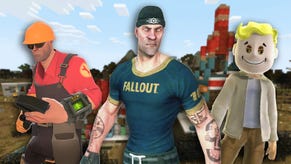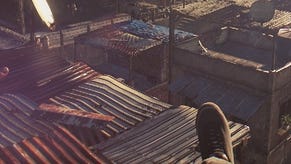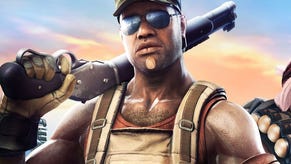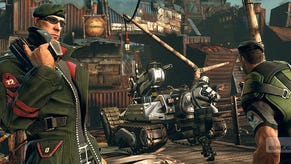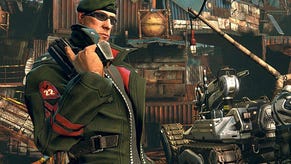Splash Damage's Paul Wedgwood
On the Brink.
In Brink, Splash Damage and Bethesda may have one of the most ambitious games of 2010: a first-person shooter that blends single- and multi-player on a fundamental level, which is also sufficiently accessible that a complete novice can go toe to toe with a veteran and both still enjoy themselves. Following his Developer Session at the Eurogamer Expo 2009 last month, we cornered studio boss Paul Wedgwood to see how it's getting on.
We certainly would do a closed beta for friends and family. But I couldn't say about a public beta or a demo.
We hope this will be the game that changes people's minds about the multiplayer experience.
Our past game, Wolfenstein: Enemy Territory, had a large but predominantly hardcore PC audience, and just to get to the point where they could play online they had to download the demo, install it, connect to a server, realise they need a patch, get the patch, realise their graphics card isn't up to scratch, go out and get a new graphics card; then they finally get to play online with the right patch and on the right server and their broadband connection is choppy so they get a better broadband connection and they finally connect and everything's fine and suddenly some 13-year-old racist tells them that their wife is 400lbs and, you know, it just basically ruins their experience.
[Splash Damage creative director] Richard Ham has a rigorous set of anti-griefing safeguards and advanced player matchmaking and...
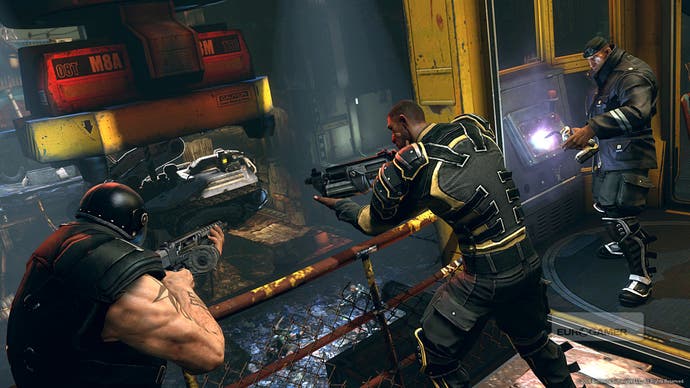
We're not going to talk about how it works because people will start thinking about ways to get around it before we even get started, ha! There are a lot of people that buy shooters and only ever play single-player and never even go online - some of them don't even realise there is a multiplayer button and what that's supposed to do or what that experience is supposed to be. It's our goal from the outset to incidentally teach people to be good at multiplayer shooters while they're playing our single-player shooter; to play as part of a coordinated team; to earn rewards for making other people's experience more fun; to outflank the enemy, and things that are going to happen when they play online anyway.
And we have a bunch of other methods from proving their abilities playing Engineer, Medic and so on, not just from grinding XP to make them a more powerful, item-owning character, but actually help their skill improve as an Engineer or Medic. We track that and at a certain point in the game we say to them, "Why don't you just try co-op and see how you go? For this next mission we're going to give you twice the number of experience points if you play co-operatively with somebody else." We're so confident that the players are going to have fun that they'll then want to start playing co-operatively more often.
No no no: it's massive! Wolfenstein: Enemy Territory was pure multiplayer and Enemy Territory: Quake Wars was a multiplayer game that had offline bots but apart from that was exactly the same game. This is a game that has been built from the outset as a heavily narrative-driven story by full-time writers. We're making use of techniques like performance capturing - so we get really good physical performances from actors along with their facial expressions and voices and their interaction with other actors - to build a game that has a really strong narrative component that isn't just a highly replayable shooter. So that's a big part for us.
Your experience through it, imagining you have no internet connection should, for us to have achieved our goal, be as compelling as any other triple-A shooter.
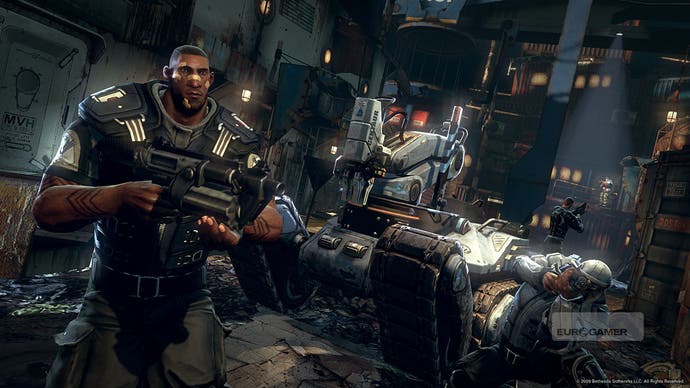
Well in some ways you are [more powerful] because the new player can't specialise and do certain things. For example: the interrogator PDA Taser is one of the items you can buy and it takes up one of three items or tool slots. Tools are things you use on people and items are things you drop in the field for other people. What you do then is you bind those three items. Those items do get more powerful, but they get more powerful in their ability to have fun while you specialise doing something really, really cool.
You can take a route that makes you a really cool meat-shield able to deal massive amounts of damage, but it's not going to outdo somebody who's chosen Skinny, who sneaks up the rafters behind you and stabs you in the back. There are counters. As long as people understand why death or incapacitation occurs and are able to react to it and learn from it then it's the combination of the choice of how to specialise and the skills the player has developed. You can earn more experience points in the game without firing a single shot by playing well than you can simply as a shooter.


